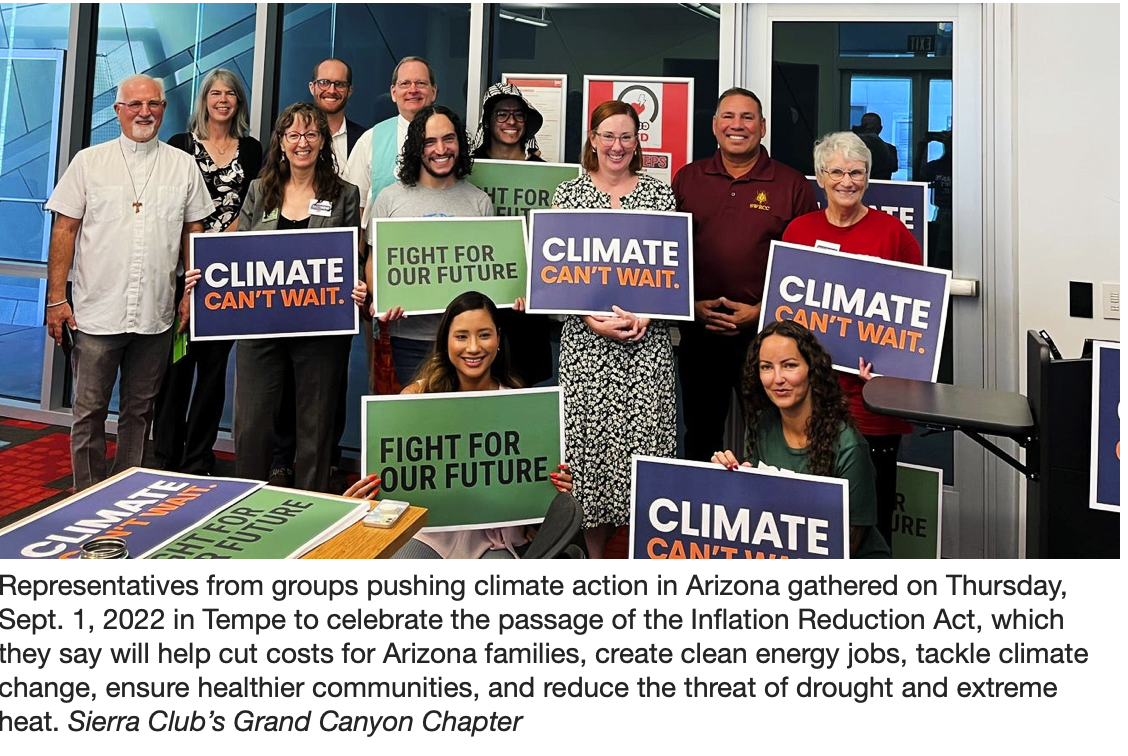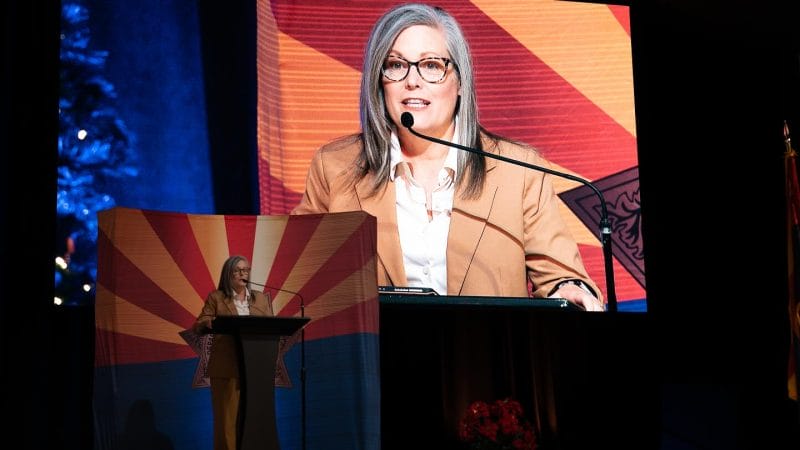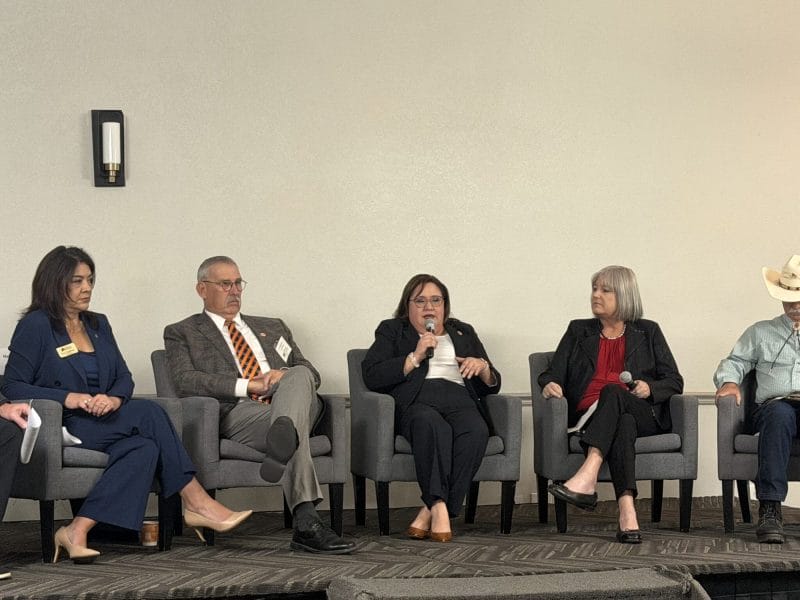By Joan Meiners || Arizona Republic
Representatives from groups pushing climate action in Arizona gathered on Thursday, Sept. 1, 2022 in Tempe to celebrate the passage of the Inflation Reduction Act, which they say will help cut costs for Arizona families, create clean energy jobs, tackle climate change, ensure healthier communities, and reduce the threat of drought and extreme heat.
Holding up blue and green signs reading “Climate Can’t Wait” and “Fight for Our Future,” a coalition of local leaders on the front lines of Arizona’s climate fight gathered Thursday — just ahead of Labor Day — at the Tempe Transportation Center to celebrate the passage of the Inflation Reduction Act.
The measure, signed into law by President Joe Biden on Aug. 16, includes $369 billion to reduce carbon emissions and expand renewable energy infrastructure, with $60 billion earmarked for clean manufacturing job creation.
At a short news conference, the activists took turns thanking Arizona elected leaders who supported the historic bill, which they say will also cut energy costs while addressing climate change, drought and extreme heat to support healthier communities.
Among those mentioned were Sen. Kyrsten Sinema, who played a role in securing an additional $4 billion in the IRA’s budget for western drought resiliency, as well as Sen. Mark Kelly and Reps. Raúl Grijalva, Tom O’Halleran, Ruben Gallego, Ann Kirkpatrick and Greg Stanton, all Arizona Democrats.
Climate bill background:Will Kyrsten Sinema see the new climate and inflation bill as a good deal for Arizona?
Arizona already ranked fifth in the nation for solar-powered electricity generation in 2021, according to a report from the U.S. Energy Information Administration. But solar still only made up 9% of Arizona’s total electricity net generation, with the majority of sources being natural gas (43%), nuclear power (28%) and coal (13%). Many local experts say that 9% number could be much higher.
“We effectively have zero fossil fuel industry in Arizona. And what that means is that we import essentially all of our fossil fuels into this state, which hurts our bottom line,” Troy Rule, a law professor at Arizona State University who has authored multiple books on renewable energy, said in an April interview with The Arizona Republic. “But photons from the sun come straight down onto all of Arizona every day for free. So if we were to fix that problem, it would create huge economic benefit for the state forever going forward.”








